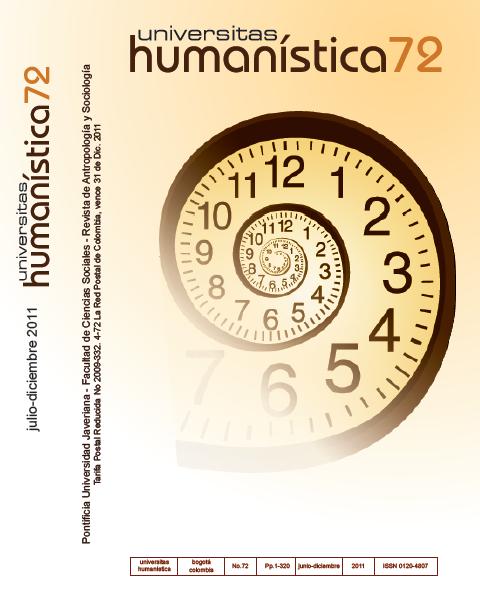Abstract
This paper intends to show, in first instance, the existence of some “artifacts” as devicesof memory, born out from various exercises conducted among communities havingundergone violence. These devices are the “living” embodiment of underground memoriesthat were gathered within various inquiry and extension projects by the researchgroup. In the second part, a more theoretical reflection is put forward on the Memory/Power relationship as the frame of discussion within which these experiences aresituated, emphasizing two aspects: making visible those “spaces of power” where bothmemories are situated within today’s Colombian society so as to show specifically howthose spaces of power appear, as well as the instruments they make use of, qualifyingmemories either as dominant or underground; and to show those spaces, just like anyother social process, are not immutable or unchangeable phenomena, but are proneto be transformed, redefined and even reconfigured up to leading all the way to makechanges to differently distribute the resources of power leaving their mark on them.In a third final part, a reflection “as a working hypothesis” is made, which could bethe way to change the issue at hand and suggest new paths aiming to shift the placein society for those underground (marginal, hidden and scarcely visibilized) memoriesand make them emerge to surface so that they can develop all of their political potentialand get their due place in Colombia’s historical memory.
This journal provides immediate open access to its content on the principle that making research freely available to the public, encourages greater global exchange of knowledge.
The journal Universitas Humanística is registered under a Creative Commons Attribution 4.0 International Public License. Thus, this work may be reproduced, distributed, and publicly shared in digital format, as long as the names of the authors and Pontificia Universidad Javeriana are acknowledged. Others are allowed to quote, adapt, transform, auto-archive, republish, and create based on this material, for any purpose (even commercial ones), provided the authorship is duly acknowledged, a link to the original work is provided, and it is specified if changes have been made. Pontificia Universidad Javeriana does not hold the rights of published works and the authors are solely responsible for the contents of their works; they keep the moral, intellectual, privacy, and publicity rights.
Approving the intervention of the work (review, copy-editing, translation, layout) and the following outreach, are granted through an use license and not through an assignment of rights. This means the journal and Pontificia Universidad Javeriana cannot be held responsible for any ethical malpractice by the authors. As a consequence of the protection granted by the use license, the journal is not required to publish recantations or modify information already published, unless the errata stems from the editorial management process. Publishing contents in this journal does not generate royalties for contributors.


